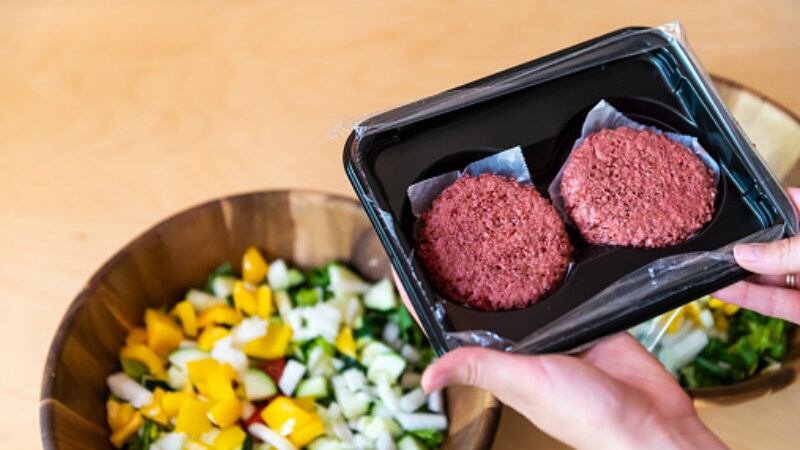Local dishes: Next Meats jumps on plant-based trend in Japan with yakiniku and gyudon products
Japanese start-up Next Meats is tapping the country’s growing plant-based food trend with its yakiniku (grilled meat) and gyudon (beef bowl) products.
Next Meats was established in June this year to develop and sell plant-based meat products as a solution to the global food crisis.
Yuya Makino, PR and marketing director, said: “Our mission is to pave the world’s future with fake meats. In doing so, we hope to lessen the amount of meat being produced, thus saving the environment little by little.”
The plant-based food trend was largely imported from the West, and the current market in Japan is relatively small.
Snack delivery: Japanese subscription service ramps up product development with fresh funds
Tokyo-based snack subscription service Snaq.me is planning to develop more than 100 new snack products annually with the help of fresh funding of JYP260m (US$2.46m).
The funds came from W ventures, Delight ventures, SMBC venture capital and Future Food Fund. Snaq.me was founded in March 2016 and has raised about JPY600m (US$5.7m) so far.
President and CEO Shintaro Hattori told FoodNavigator-Asia the funds would be used towards its product development and improving existing formulations in order to launch at least 10 products every month.
Snaq.me works with manufacturers to co-develop snack products. Hattori said: “We have over 60 manufacturers who produce snacks for us. We produce recipes and send it to manufacturers who help produce our original snacks.”
Multi-meat mimicry: Japan’s DAIZ develops new soy-processing tech to ape conventional meats
Japan-based DAIZ has developed a new form of soybean processing technology that is able to mimic multiple types of conventional meats such as chicken, pork and fish, opening up a new avenue of additive-free plant-based creations for food manufacturers.
DAIZ’s patented technology is called the Ochiai Germination Method (OGM), which focuses on using germinated high oleic acid soybeans as a base ingredient.
“The free amino acid composition of germinated soybeans has been found to [already] be similar to that of meat, and our OGM technology adjusts parameters such as oxygen, carbon dioxide, temperature, and humidity during the soybean germination process to obtain a taste composition that is [even more meat-like],” DAIZ CTO Koji Ochiai told FoodNavigator-Asia.
Step in the right direction? Nissin reveals plans to procure sustainable and conflict-free palm oil
Instant noodles giant Nissin Foods Group recently revised its palm oil policy, with the firm stating it is taking further steps to procure sustainable and conflict-free palm oil.
As part of the No Deforestation, No Peat, No Exploitation (NDPE) policy, this new commitment takes into account deforestation prevention, biodiversity preservation, and the human rights of plantation workers. This is on top of its sustainable commitment.
Nissin joined the Roundtable on Sustainable Palm Oil (RSPO) in October 2017 and from March 2019, all domestic plants that manufactured its flagship Cup Noodles began procuring RSPO-certified palm oil.
As of March 2020, the Group’s overall procurement ratio of palm oil certified by RSPO is approximately 20%.
Japan beverage alliance: Kirin and FANCL on track to launch first functional drink in October
Kirin and FANCL is set to release two new beverages in Japan this October, including one with a Food with Function (FFC) claim - their first such products since forming a business alliance last year.
The new products include a non-alcoholic ready to drink beverage with a Food with Function (FFC) claim for reducing the absorption of sugar and fat.
It combines the concept of FANCL’s dietary supplement Calolimit and Kirin Brewery’s non-alcoholic Chu-hi Hyorei brand, and comes in two flavours – lemon and grapefruit.
The second product is a flavoured water product utilising FANCL's ingredients and knowledge in beauty ingredients.





